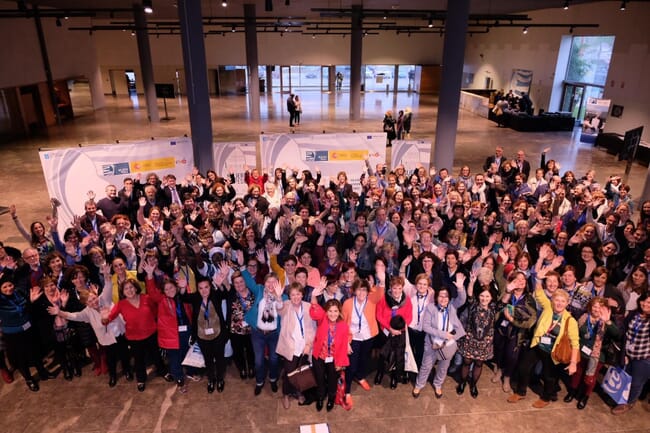The event, which took place in Santiago de Compostela on 5-7 November, was established by the Spanish Ministry of Agriculture, Fisheries and Food in order to discuss the situation of women in the seafood industry.

It attracted 300 participants, over 90 percent of whom were women, from 20 countries.
These included ministerial representatives from Morocco, France, Portugal and Spain, as well as top FAO officers.
This international congress recognised the high value added by professional women in the seafood industry, praised their great level of commitment all along the value chain and recognised women as solution providers in different fields (environment, employment). Simultaneously, the different workshops evidenced that women's associations meet both organisational and political difficulties to get their voice heard as it should be. One strong conclusion was the necessity for all stakeholders to interconnect and converse more often.
The 11-point plan
The declaration, launched at the event, stated that is necessary:
- To incorporate the gender perspective in designing, executing and monitoring policies and sectoral strategy framework in a way that the specific impact of the problems and interests of women within the sector are taken into account, establishing mechanisms that ensure their participation in decision-making procedures.
- To increase efforts on statistics in order to foster data categorised by sex for all fisheries and aquaculture sub-sectors. This will help to identify possible gender gaps and prevent the undervaluation of women's work, both on a quantitative and qualitative level.
- To fight against pre-established gender roles within the sector that put women at a disadvantage or make them inferior to men, considering and concerning several Administrations, entities and socials agents involved in fisheries and aquaculture activities.
- To foster a fair access to the productive, economic and financial resources that guarantee that women have the goods and resources needed for preforming their tasks within the sector available to them.
- To improve the working conditions of women within the sector, fighting against the informality and precariousness of women's work, segregation both horizontally and vertically, the wage gap and barriers that hinder the reconciliation of work, family and personal life.
- To guarantee the social protection and safety of workers (women and men) in the sector and to provide professional dignity to their activity so that it can be considered "decent work", according to the ILO definition. And, to this end, to promote the international legal framework for decent work in fisheries, with a view to ensuring that the world’s 38 million fishers working on board commercial fishing vessels enjoy decent working and living conditions.
- To increase women's recruitment and access to training in fisheries or aquaculture, as well as in other complementary matters and areas of knowledge such as new technologies or business management, so that they can professionally develop, improve their working conditions and their promotion opportunities.
- To encourage female entrepreneurship and business initiatives within the sector, enabling public budgets and making it easier to access grants, credits or other funding sources, as well as appropriate training and advice for the implementation of projects favouring the sustainable development of fishing communities or areas.
- To break down structural barriers that hinder the incorporation of women into activities where they have historically been underrepresented (such as extractive fishing on board) and, by means of adequacy, from the gender perspective, of working facilities or areas.
- To guarantee regulatory frameworks that safeguard equal treatment and nondiscrimination, as well as implementing mechanisms and instruments for monitoring and enforcing such principles, preventing situations in which women's rights are violated or the power relations between the sexes are abused.
- To favour the formation of women's associations within the sector and the creation of organisational structures that bring together and represent several professional groups of women in the fisheries and aquaculture sector. In this regard, the creation of a network or international platform of women in fisheries that is supported by the international organisations signed below is fundamental in order to safeguard women's rights and interests therein. This will be one of the main ways for fostering their empowerment and leadership.
The next installment of the congress is due to take place in Morocco in 2019.

